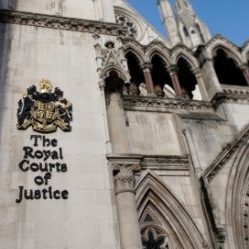
Court of Appeal: Appeal rejected
The solicitors to claimants who acquired a cause of action to sue the insolvent defendant’s lawyers for professional negligence cannot be prevented from accessing privileged material, the Court of Appeal has ruled.
The claim against national law firm BLM and counsel follows the PIP breast implant group litigation, which involved around 1,000 claimants.
Some 623 of those claims were brought against Transform Medical Group (CS) Ltd, which was insured by Travelers in relation to 197 claims, but not the remaining 426. Travelers did not disclose this until June 2014, four months before the hearing was due.
The uninsured claimants did not discontinue their claims, as that would have rendered them liable to pay Transform’s costs. Instead, they pursued their claims to judgment in the hope that they could obtain non-party costs orders against Travelers.
Transform went into administration in 2015; the uninsured claimants obtained judgment against it the following year, but the £6m in damages and £11m in costs have not been paid.
The uninsured claimants applied to the court for an order that Travelers pay their costs of the action – not any damages. The High Court made such an order, a decision upheld by the Court of Appeal, but then overturned in 2019 by the Supreme Court.
Welsh firm Hugh James were the lead claimant solicitors and in 2018 Involegal, the volume remortgage law firm owned by the partners of Hugh James, took an assignment of Transform’s cause of action against BLM and counsel.
Involegal alleges that the lawyers negligently advised Transform not to inform Hugh James that Transform was not insured for those 426 claims until 2014; Hugh James first asked about the insurance position in May 2012.
Involegal says that, had Hugh James been told of the position in 2012, the uninsured claimants would not have registered under the group litigation order made in April 2012 or would have sought to have their claims stayed.
Instead, Transform had to deal with the uninsured claims and Involegal says this led to it entering administration.
In the latest round of litigation, Travelers sought to appeal the decision last year of Mr Andrew Hochhauser QC, sitting as a deputy High Court Judge, that the administrators of Transform were entitled to disclose to Involegal, as their successors in title, documents in the file created by Transform’s joint retainer with Travelers of BLM.
Given that Hugh James had acted for the claimants, “on the face of it, that might appear to be an odd result”, said Lord Justice Coulson, giving the court’s unanimous ruling.
He noted Traveler’s “vehement objections” to the disclosure, continuing: “But the more this court was taken to the authorities, and the few documents relevant to this appeal, the more it became apparent to me that Travelers could do little more than point to the unusual result on the facts as a reason why, in principle, their JRP [joint retainer privilege] should override Transform’s right to disclosure, and thus that of [Involegal], Transform’s successors in title…
“No principle, no authority, and no part of the background material was identified which even began to persuade me that the ordinary principles relating to successors in title, and joint retainer privilege, did not apply to this case.”
The court rejected the suggestions that Involegal was, in reality, a third party rather than successor in title and that, if Travelers asserted its right to privilege in the joint retainer file, this in some way overrode Involegal’s.
Coulson LJ said: “Joint retainer privilege means what it says. Each of the parties is entitled to claim privilege as against the world, but each is not entitled to claim privilege as against the other.
“It has never been suggested, let alone held, that, as a matter of principle, one of the parties’ right to JRP trumps the right of the other to disclosure of the documents.”
In a separate ruling late last year, the High Court rejected an application to strike out Involegal’s claim.
Under the assignment and a declaration of trust, after payment of Involegal’s costs (Hugh James is acting for it) and sums to the administrators as consideration for the assignment, any balance will be paid to the uninsured claimants by way of damages and to Hugh James in respect of unpaid costs incurred in respect these claims.
Involegal will pay the administrators £250,000 for the assignment if it obtains up to £5m, and 5% of any amount received above that.












Leave a Comment